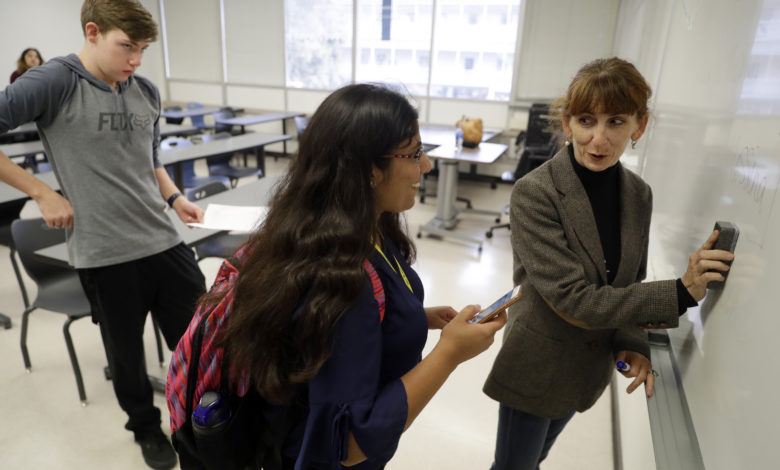National teacher shortage is affecting local Missouri schools

Public school across the nation are suffering from teacher shortages and are struggling to fill positions. Some school districts are offering incentives and pay raises to get more teachers into the classroom even as the school year starts.
Some teacher recruiters said this isn’t a new problem, but it became worse during the COVID-19 pandemic. Hundreds of districts across the country are seeing their first weeks of the new school year, but are still dealing with what many school administrators are calling an ongoing problem.
The Bureau of Labor Statistics projected that over the next decade, there will be over 124,000 openings for elementary school teachers and over 77,000 for high school teachers each year.
Juan Martinez, the superintendent of Clint Independent School District, just outside of El Paso, Texas, said his district shared the same problem.
“At the end of the school year last year we had a serious shortage of special education teachers. We surely didn’t want to start the year with 18 vacancies,” Martinez said.
Clint Independent School District received a federal grant to give $10,000 sign-on bonuses for special education teachers. But, Martinez said now the district has faced shortages in other areas.
“We have more teachers who decided to go into special education because of the funding we are providing, and now leaving other areas vacant.”
Lawmakers on Capitol Hill have been meeting to discuss ways to fix the teacher shortage, which include funding, investments in public loan forgiveness programs and easing barriers for teacher certification.
Amanda Robbins of the Webb City School District noted that they too are feeling some strain from the shortage, “We had to hire five retired teachers to come back and fill positions at various levels throughout the district.”
Some analysts believe the primary issue leading to teacher retention struggles nation wide is wage or cost of living related. Robbins also attributed some of the shortage to wage issues saying that, “the continued rise of college education versus the salary of a new teacher” makes it difficult to pursue the career, “when they can acquire higher paying jobs in other industries.”
Along with economic factors Robbins noted that some other reasons for the shortage are that, “there are certified teachers who are simply choosing not to teach anymore. Teaching is difficult work, to begin with then when adding in the political environment – which has not been incredibly positive for educators or school districts – it becomes even more difficult.”



